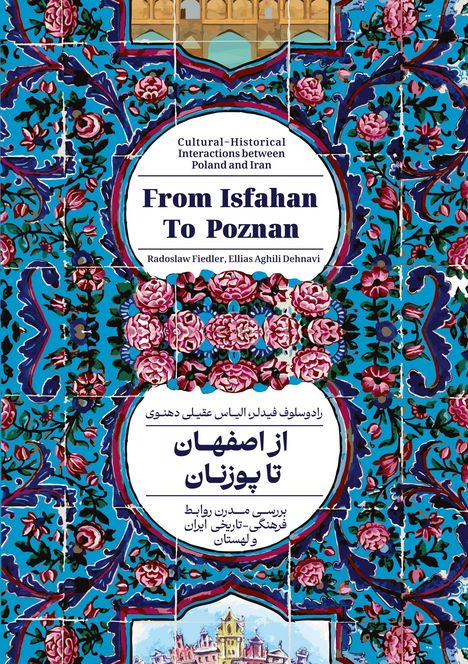Rados¿aw Fiedler: From Isfahan To Poznan, Kartoniert / Broschiert
From Isfahan To Poznan
- Cultural-Historical Interactions between Poland and Iran
(soweit verfügbar beim Lieferanten)
- Verlag:
- tredition, 05/2024
- Einband:
- Kartoniert / Broschiert, Paperback
- Sprache:
- Englisch
- ISBN-13:
- 9783384286994
- Artikelnummer:
- 11918727
- Umfang:
- 116 Seiten
- Nummer der Auflage:
- 24002
- Ausgabe:
- 2. Auflage
- Gewicht:
- 180 g
- Maße:
- 210 x 148 mm
- Stärke:
- 9 mm
- Erscheinungstermin:
- 20.5.2024
- Hinweis
-
Achtung: Artikel ist nicht in deutscher Sprache!
Weitere Ausgaben von From Isfahan To Poznan |
Preis |
|---|---|
| Buch, Gebunden, HC gerader Rücken kaschiert, Englisch | EUR 25,00* |
Klappentext
The complex tapestry of international relations is woven from history, culture, and diplomacy threads. Among the rich and diverse narratives of global connections, the storied bond between Iran and Poland is a fascinating chapter. For centuries, these two nations have navigated the currents of geopolitics, forging a unique path marked by shared interests, cultural exchange, and strategic cooperation. As we delve into the intricate history of Iran-Poland relations, we'll uncover the triumphs, tribulations, and turning points that have shaped this enduring partnership, revealing the profound impact it has had on the global landscape. Many sources have been written about the history of relations between Iran and Poland. The history of the first connection between the two countries goes back to the Safavid period, but with the extinction of the Safavid rule and the partition of Poland, these relations did not become official. Negotiations to establish political relations between the two countries began at the end of the 12th century. Before the establishment of official relations between the two countries, a person named Monsieur Wertheim was the honorary consul general of Iran in Warsaw. At the same time, Iran received invitations from Warsaw for some of its representatives, such as Nabil al-Doulah and Yamin Khaqan. Negotiations related to the conclusion of a friendship and trade agreement between the two countries were held in Warsaw and finally in 1305. It was signed by the representatives of the two countries in Tehran in 1306 (solar calendar). It was sent to the National Council for approval and after making some amendments, it was ratified in 1307 (Solar Calendar); it was then officially concluded between the parties. There are other narrations regarding the relationship between Iran and Poland; the oldest document related to the relations between Iran and Poland is a letter sent in 1474 by Uzon Hassan, the king of Iran to Casimir IV Jagiellon, the king of Poland, which is now recorded in the National Archives of Poland. The bearer of this letter was "Kantariti" from Venice, who had lived in Iran for some time and had learned the Persian language well. Most of the Polish Iranian scholars learned Persian in Istanbul after this date. In the following years, the rulers of the two countries were always in contact with each other through their political representatives. Some sources testify to the consultations between Stephen Báthory the king of Poland and Sultan Mohammad Khodabandeh, the king of Iran. History is solid proof of the deep relationship between the two nations; besides, one can understand how important it is to build rapport through cultural interactions; we can refer to history in different ways; or better say, in two most probable ways: positive / negative and no one can forget the both versions and the related vibes.
Anmerkungen:
Mehr von Rados¿aw Fiedler


